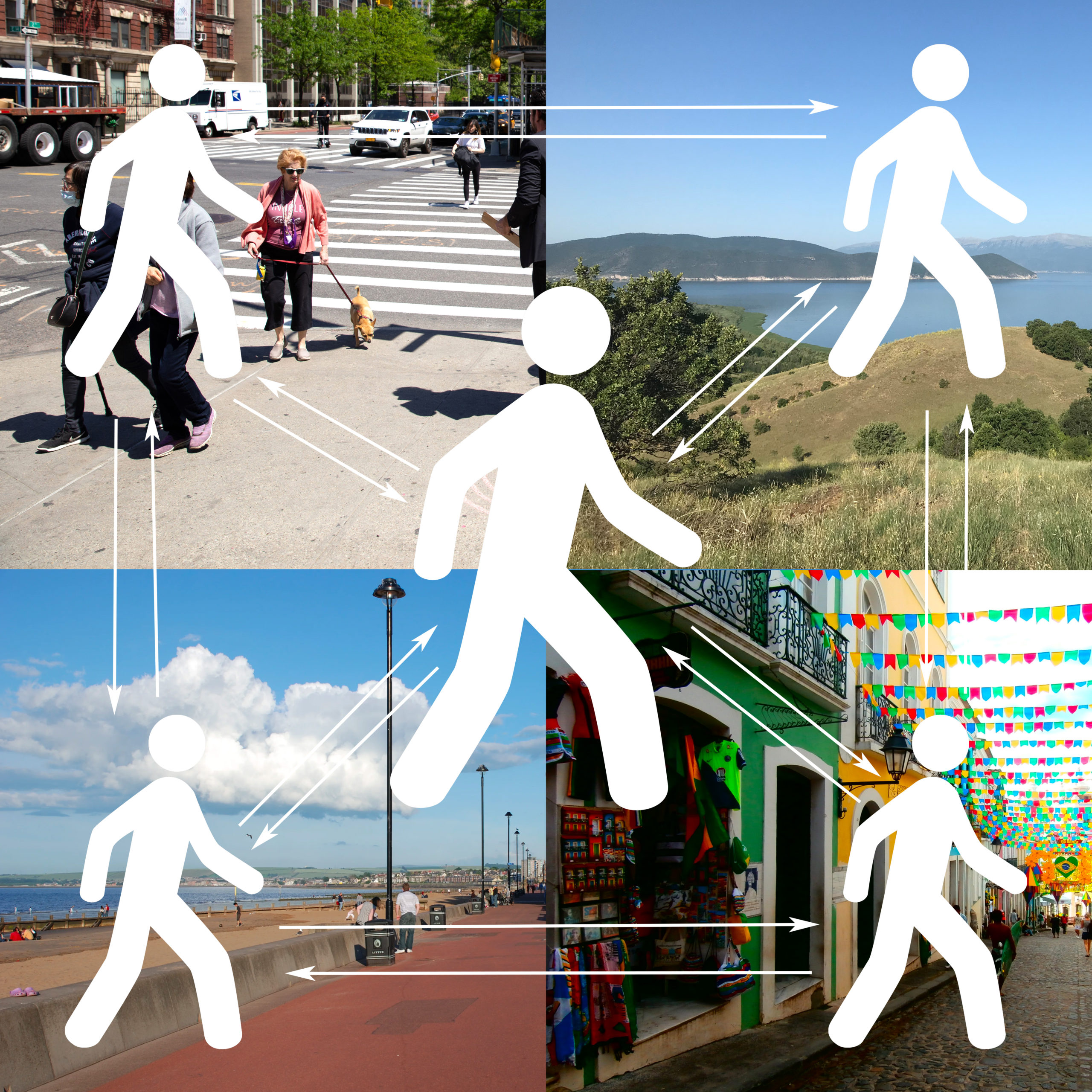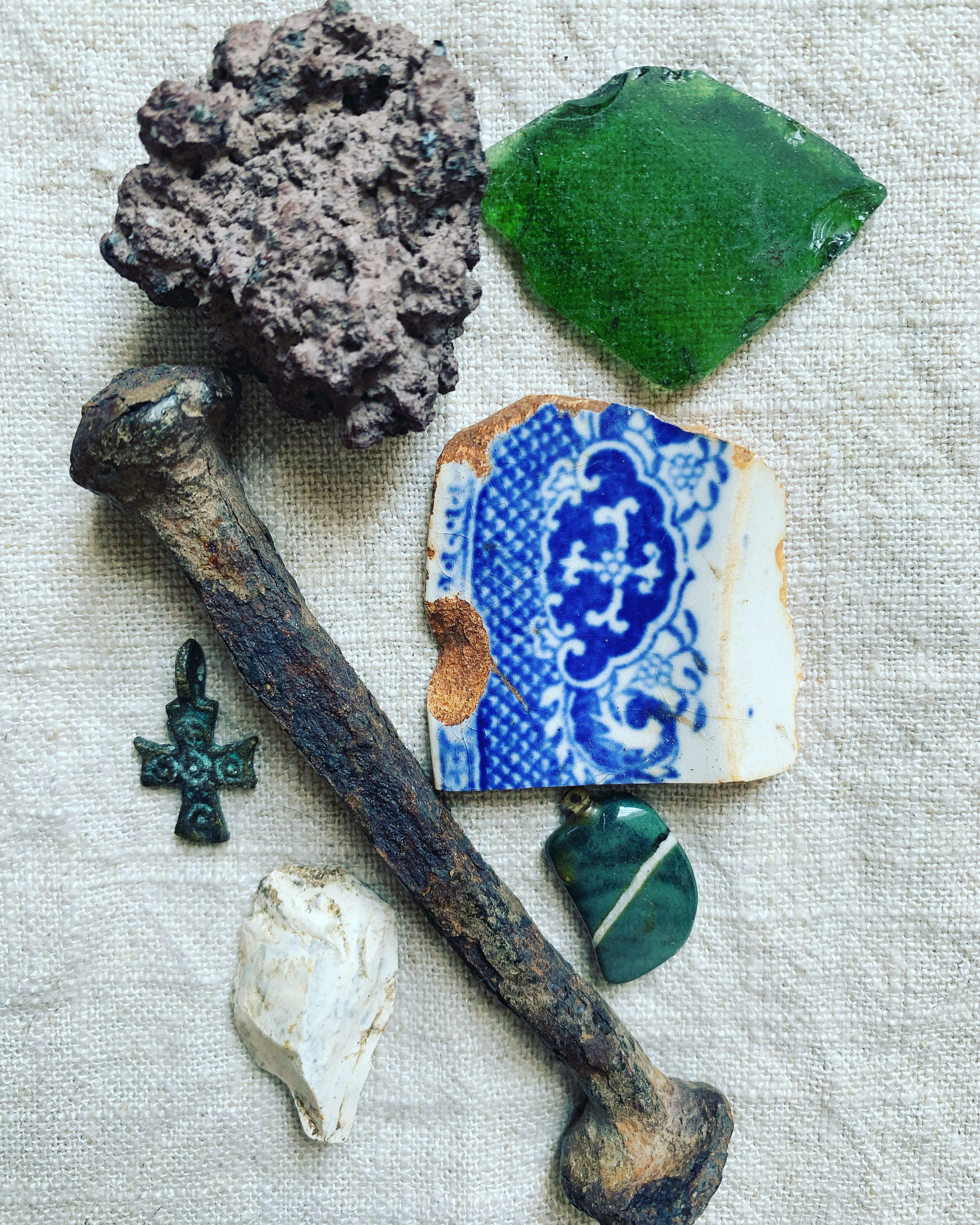The project addresses the conference theme question: what questions does the ground you walk on raise? Here, walking is seen as an archaeological process transcribed into a Wunderkammer of roaming arte/ecofacts, a hoard of perambulatory acquisition, a strolling epistemology. These are walks of collecting found objects and an installation that articulates the embodied culture of a walk.
The project is an invitation for participants to take a walk (perhaps many walks) and collect arte/ecofacts along the way. On their return, they curate their acquired material into a Wunderkammer. Here, Wunderkammer can be read in its widest sense with regard to how a collection might be referred to as ‘curious’ and as a metaphor of the walk. As a form of reference, Joseph Beuys’s, ‘Actions, Vitrines, Environments’ (1983), Chris Drury’s ‘Medicine Wheel’ (1982-1983), Nikolaus Long’s ‘Culture Heap’ (1986-1991) are such examples of collection, assemblage and curation of found objects.
Outcomes of this walkeology will be in the form of:
1. An invitation for participants to create their own and/or collective Wunderkammer which will coalesce with my own walking in my local area and the creation of a Wunderkammer. There is no map, plan or requirement for the walking – the journey is open to all possibilities.
2. A digital online gathering in which participants share their Wunderkammers and in which we discuss the questions raised in the process. This is where the self becomes an integral part of the process. There is potential for this discussion to excavate into the soul of our walking.
3. Please contact me if you are interested in talking part and would like to share your Wunderkammer during the online event ([email protected], please make sure the title of your email includes ‘Prespa’).
Introduction to the project on Sunday 4 July via an online video chat.
Related

Remote walking – walking with prompts
The pandemic challenged walking artists to engage with new forms and new media for their practice. Group walking was translated into online walking, allowing people around the globe to walk together. Prompts or "walking scores" facilitated pandemic walkers to explore within the limits of their walking spaces, often in surprising and new ways, individually or with other remote walkers. Online technologies permitted to listen into remote spaces, beyond physical reach in the pandemic.



